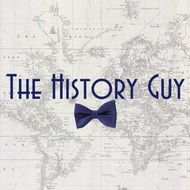
Join The History Guy from YouTube in conversation about his videos and various topics in history. Here you can find behind-the-scenes peeks of the set and The History Cats. Share ideas for future videos or ask questions of both the community and The History Guy himself. Early releases and the occasional extras are available for supporting members.
As audiences in the East were used to science finding fantastic new things, it hardly seemed impossible to a person in the 19th century that the country had once been inhabited by giants, or that ancient, incredible civilizations could still lie undiscovered in the vast west. Some newspaper writers were more than happy to simply make great discoveries up, and readers just as happy to take them at their word.
An Olympic medal event only since 1998 you might think that curling is a relatively new sport apparently invented in Canada. And, of course, neither is true. The sport dates back at least to the 16th century, and comes from perhaps a surprising place.
During the later half of the nineteenth century numerous attempts were made to assassinate Tsar Alexander II of Russia. Killing the Tsar, however, turned out to be no easy task.
The St Louis World’s Fair, officially known as the Louisiana Purchase Expedition, was an enormous event, with more than 60 countries and 43 states maintaining exhibition spaces for nearly twenty million visitors. In addition to the many exhibitions, a variety of private enterprises set up camp near the fair in the hopes of making money off the guaranteed audience. Some of those ideas worked better than others, but few among them went as ridiculously badly as the attempt to put on a Spanish-Style bullfight.












